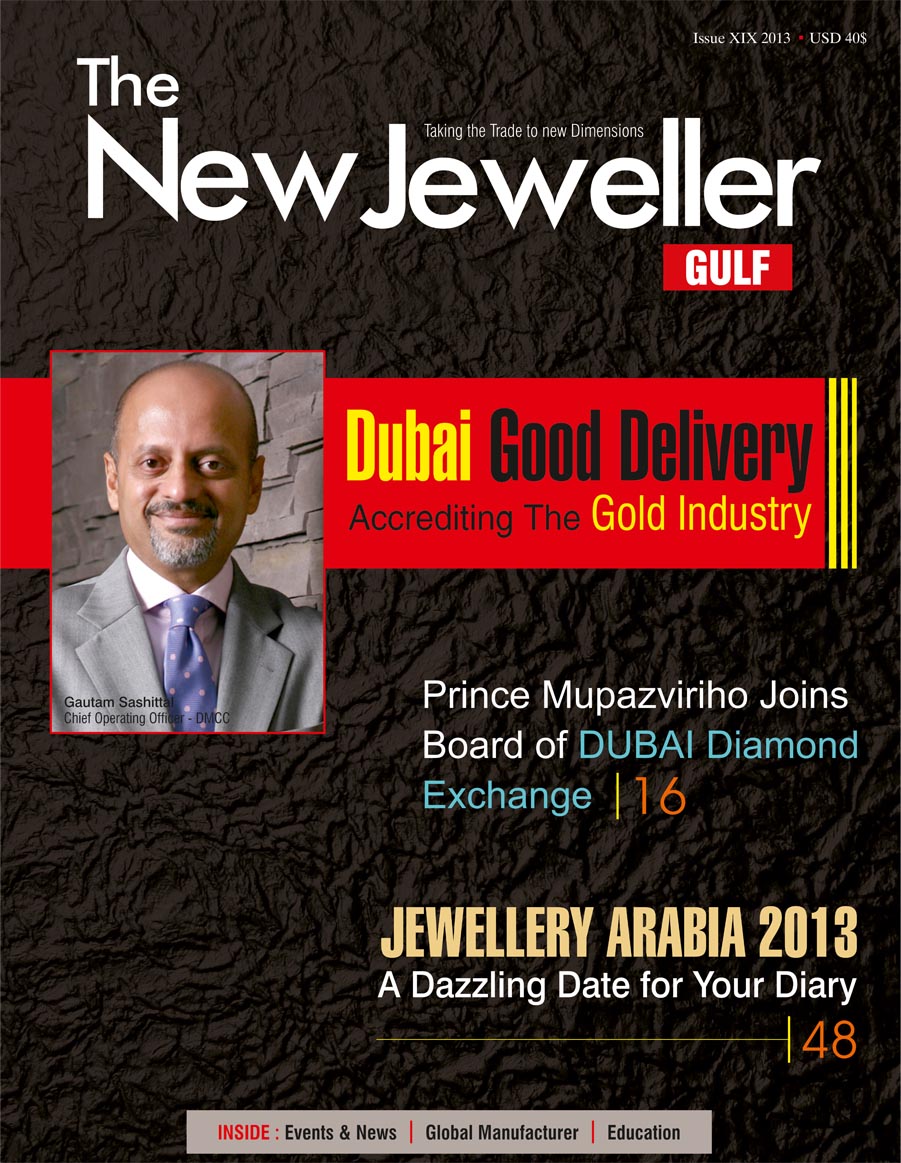
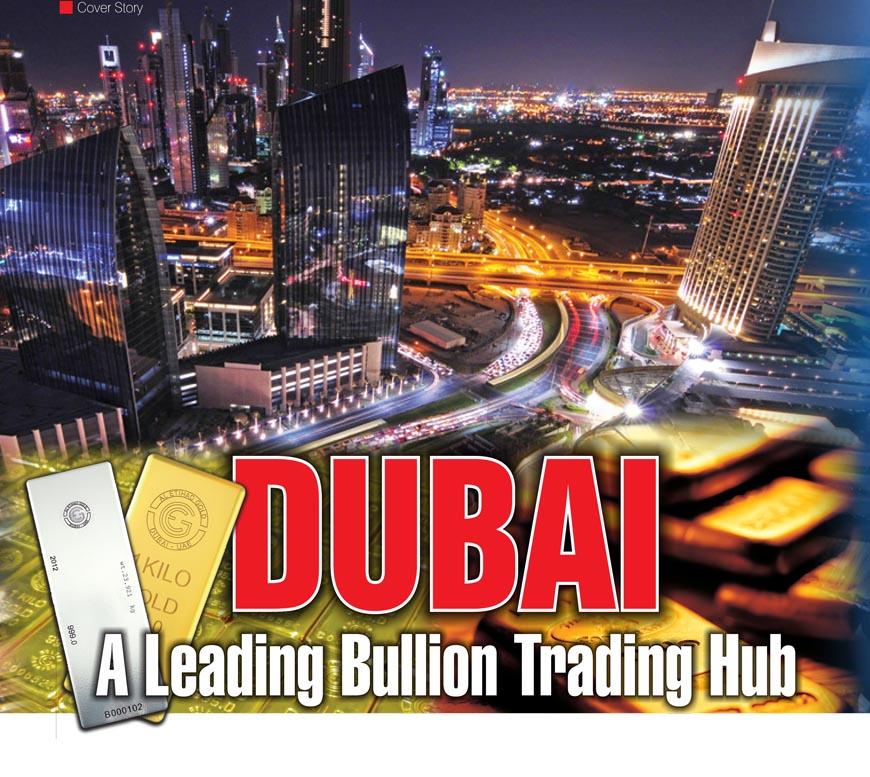
A TNJ bureau exclusive | |
The World Gold Council, in its report of gold consumption in the first half of 2013, highlights that ownership of gold has shifted further East, as Westerners sell their ETF’s while Asian consumers have responded to lower prices by buying jewellery and bullion. Pramod Mohan, Senior Executive Officer, Scotia Bank, goes further explaining that, “Dubai’s success is partly due to its strategic geographic location between producing nations and consuming nations in the East; but also due to its ability to provide its members with the appropriate regulation, financial and physical infrastructure, products and services they require to succeed and to trade with confidence.”
|
BECOMING A COMMODITIES CENTRE
One of the principal reasons for Dubai’s success is its singular focus on stimulating trade through the Emirate. Commodities form a natural part of this trade, hence the moniker ‘City of Gold’. It all began in the early 1900s, when Sheikh Maktoum bin Hasher turned Dubai into a free port, cutting fees and abolishing custom duties. Fifty years later, Sheikh Rashid took another step and dredged Dubai Creek, creating one of the largest ports in the world. This enabled Dubai’s trading volumes to explode, in particular the gold re-export market. |

It was not until 2002, when the Dubai Multi Commodities Centre was set up by His Highness Sheikh Mohammed Bin Rashid Al Maktoum, UAE Vice President and Prime Minister, Ruler of Dubai, to help facilitate commodities trade in Dubai that commodity trade, and in particular gold trade, truly came to life. DMCC is the Government of Dubai Authority dedicated to establishing Dubai as the global
|
gateway for commodity trade. The DMCC Free Zone, a 200-hectare mixed-used free zone, was conceptualised with the intention of providing the physical infrastructure for the commodity businesses wishing to set up offices in Dubai. It now has over 7,300 companies as members from across all sectors and 75,000 people living and working in the free zone.
|
 DUBAI GOLD TRADE Throughout history, Dubai has played a significant role in the global gold market and is now a bullion centre of international significance. Dubai’s gold trade has had a 28% CAGR between 2003 and 2011, culminating in a total of US$ 70 billion of trade flowing through the Emirate in 2012, despite the fluctuation in gold prices. Its success is based on its ability to integrate refining, manufacturing and trading of gold and precious metals through its infrastructure, regulations, products and services. Alison Burns, Head of Precious Metals MENA - Standard Bank Plc said, “Dubai has emerged as one of the major trading hubs for gold so it is important that international industry players maintain a strong position in this region and build on this trend. Dubai and the DMCC houses the majority of regional gold traders and our being here offers us close proximity to this market place. Dubai is a vibrant and buoyant business environment, and this has been to the benefit of our customer base. In addition, we at Standard Bank engage in facilitating cross border flows into sub Saharan Africa and having a hub in Dubai enables us to link opportunities with the Middle East and Africa.” |
Regulation - DMCC helps develop Dubai into a responsible trading hub
In 2005, DMCC set its sights on promoting international best practices for the precious metals industry and developed the Dubai Good Delivery Standard. DGD is a voluntary regulation for refineries located anywhere in the world for gold and silver bars production and technical specification, that is benchmarked to international responsible sourcing standards. DGD’s objective , set out by DMCC, is to increase confidence in the gold and silver industry by providing a technical robust and globally accepted standard for production and responsible sourcing. Since its launch, 16 refineries across 10 countries, have been accredited. Globally recognised names such as Argor- Heraeus SA, PAMP, Perth Mint, Valcambi, Kaloti, to name a few, have DGD certified refineries. It is now also widely accepted as the standard for minimum 995 purity kilo bars (1kg) in the GCC, Turkey and India. In 2012, DMCC worked with the OECD advisory group and other participating bodies to establish DMCC’s ‘Practical Guidance for Market Participants in the Gold and Precious Metals Industry’. The DMCC guidance incorporates a 5- Step framework that relies on stakeholders within the supply chain to work together to ensure the appropriate due diligence is carried out at the highest level. DMCC is also taking a leading role and collaborating with various government agencies to formalise the implementation of the DMCC guidance across the UAE. In addition, the guidance provides a globally accepted industry benchmark and reference point for global market participants to ensure their supply chain is free from conflict ‘gold and/or precious metals; creates a common understanding of the assessment process and determines the levels of conformity with the DMCC guidance; and provides assurance on the adequacy of the due diligence procedures and ensures it conforms to the DMCC guidance. As of June 2012, DMCC made it a mandatory requirement for all DGD member refineries to comply with and implement all the provisions of the DMCC’s Practical Guidance for Responsible Sourcing of Precious Metals. Presently, DGD refineries are being audited to ensure all refineries are fully compliant with DMCC and the OECD’s responsible sourcing requirements as well as fulfilling the majority of the SEC requirements (i.e. Dodd-Frank), UN sanctions, FAT Fand O FAC . I n November 2012, DMCC issued the ‘Responsible Sourcing of Precious Metals Review Protocol’, which ensures that DGD accredited member refineries and global industry participants that have adopted the guidance are compliant with the DMCC-issued guidelines. |
The DMCC Review Protocol provides guidance to international audit firms and DMCC - approved reviewers for conducting assessments on DGD member refineries’ due diligence processes, as well as ensuring a level of conformity when implementing the DMCC Guidance. In summary, those purchasing DGD refined gold are not only assured of the quality but also ensures compliance with international responsible sourcing regulations. Products and Infrastructure - from a derivatives exchange to gold bullion coins One of DMCC’s most significant achievements when changing Dubai’s gold trading landscape was the establishment of the Dubai Gold & Commodities Exchange (DGCX) in 2005. DGCX is the region's first commodity derivatives exchange and is the leading exchange in the Middle East. The exchange has played a pioneering role in developing the regional market for derivatives. The exchange comprises members from across the globe, offering futures contracts covering the precious metals, base metals, energy and currencies. The range of futures contracts offers participants of the physical commodities markets, such as producers, manufacturers and end users, the means of hedging their price-risk exposure, one of the most popular products is the gold futures contract. 2012 witnessed annual trading volumes of 552,000 contracts, up 42% on the previous year with an upsurge in interest from Asian-based traders. Another product, the Dubai Gold Securities, allowed DMCC to become the first to launch a listed Shariahcompliant exchange traded fund (ETF) in the Middle East. The gold product gave retail investors the opportunity to invest in securities backed by physical gold stored in HSBC vaults in London. DMCC launched the ‘UAE Gold Bullion Coin’ series in April 2012 to celebrate the UAE’s achievements as a major gold trading hub. The coins are sold as a souvenir and as an investment product, targeting the retail customer. |

Services - vaults to conferences DMCC members benefit from many value-added services, both within DMCC and through the wider Dubai infrastructure and business-friendly environment. For example, a dedicated valuables handling terminal at Dubai Airport offers reduced waiting time for clearing, forwarding and handling charges for both imports and exports. Furthermore, Dubai has a free trade and tax free policy, which has resulted in Dubai becoming a vaulting destination amongst global bullion banks and gold traders. London and Zurich have been vaulting destinations for decades, with Dubai and other locations only recently entering the market. The vaults in UAE are state-of-the-art and comparable in terms of size, sophistication and security to what is available globally, at the same time offering a competitive pricing structure. Vaulting is offered by independent, internationally recognised vault operators such as Brinks, G4S, Transguard and Via Mat. DMCC provides them with the infrastructure and platform to run their operations. Dubai has a strong refining presence and expertise with world- renowned companies such as Kaloti, Etihad Gold and Emirates Gold all based in the DMCC Free Zone. Earlier in 2013, Kaloti announced its intention to |
|
build the joint-largest single-location refinery in the world in Dubai, with a capacity of 1,400 tonnes of gold and 600 tonnes of silver and other precious metals. All DMCC-based refineries are DGD accredited.
 |
With regards to the physical bullion market, Dubai has plenty of market depth and breadth – in terms of retail sales, wholesale bullion trading, refining, jewellery manufacture and sales with service providers such as banks offering gold loans , assayers and brokers all based in the city . The UAE jewellery demand was 50 tonnes in 2011, offering a number of trading opportunities in the Middle East. Dubai has nearly 100 gold jewellery manufacturing units, in addition to a large number of free zone facilities operating in the Dubai Gold & Diamond Park and DMCC. “Uniform policies and cost-effective operations will make Dubai an attractive manufacturing hub, which will for sure allow Dubai and the sector to successfully compete globally said Chandu Siroya, MD of Siroya Jewellers and Vice Chairman of Dubai Gold & Jewellery Group. "The liberal trade policies of the government and low custom duties along with zero taxes help the jewellers to offer some of the world's best quality jewellery at a very reasonable price. The cultural affinity towards gold of the Arab population and also people from the Indian subcontinent ensures a steady demand for the retailers.”
DMCC also works with the precious metals community to convene an annual industry conference. In 2012, DMCC hosted its inaugural Dubai Precious Metals Conference (DPMC), bringing over 400 industry participants together to focus on the development of the global precious metals market. The 2013 DPMC event explored the theme of ‘Enhancing the Global Precious Metals Supply Chain’ through presentations and panel debates from renowned industry specialists. The third DPMC is set to be held in April 2014. WHAT’S NEXT DMCC enables its members to succeed through continuous innovation and delivery. This has resulted in an exponential increase in companies choosing to become licensed to trade in Dubai, and a similar growth in overall trade as they use the DMCC toolkit together with Dubai’s business-friendly environment to succeed. Despite the pricing fluctuations, the long-term demand for trade through Dubai is set to keep increasing. 2012 saw over 25% of the world’s gold come through Dubai and expectations are that 2013 will be higher. The rise of the middle class in India and China has put huge long-term demand on commodities and Dubai remains well positioned to service this demand and capitalise on this inextricable growth. |
|
Gem & Jewellery Export Promotion Council of India GJEPC) and Signet Jewelers Ltd. (Signet) recognise responsible sourcing standards adhered to by DMCC’s Dubai Good Delivery (DGD) refineries

|
|
The Dubai Multi Commodities Centre Authority (DMCC), the Government Authority dedicated to establishing Dubai as the global gateway for commodity trade, announced today that the Gem and Jewellery Council of India (GJEPC) supports the inclusion of imports of gold from Dubai Good Delivery Standard (DGD) compliant refiners into India. Simultaneously, Signet Jewelers Ltd. (Signet) confirmed that based on independent evaluation, the DGD standard is compliant with the Signet Responsible Sourcing Protocol (SRSP) for gold. Signet is the largest speciality retail jeweller in the USA and the UK. These recognitions will allow manufacturers in India to accept gold from refineries on the DGD list, as well as re-assuring others in the supply chain that gold from DGD refineries is responsibly sourced. DGD refineries are all required to adhere to DMCC’s Practical Sourcing Guidance and Review Protocols (‘Guidance’). Gautam Sashittal, Chief Operating Officer, DMCC, said: “The DMCC Practical Guidance and Review Protocol ensures that the DGD benchmark sets the highest global standards in responsibly sourcing minerals. Signet Jewelers’ confirmation of our alignment with their own guidelines and the support of the GJEPC of India of the inclusion of gold from DGD refineries are further testimony of the robustness of our approach and standards.” |
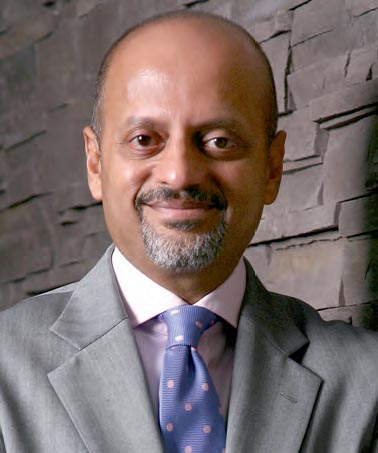 Gautam Sashittal The Signet Responsible Sourcing Protocol (SRSP) for gold outlines the procedures for suppliers to Signet Jewelers to ensure that all products which include gold are from conflict-free sources. The SRSP recognises global industry guidance and standards, including the recently added Dubai Good Delivery Standard. |
Pankaj Parekh, Vice Chairman of the Gem and Jewellery Export Promotion Council (GJEPC) of India, added:
 Pankaj Parekh “We are encouraged to know that the Dubai Good Delivery Standard has been endorsed by Signet Jewellers, confirming that DGD-accredited refineries are in line with not only Signet’s benchmarks but international best practice as well. With Signet being one of our most significant clients, we are certain that this recognition will have a positive impact on the gold market in India, in the near future, in particular with regards to responsible supply chain management.” The DGD standard, launched by DMCC in 2005, is the adopted quality standard for gold and silver bars production and technical specification in the Middle East, and is benchmarked to international standards. |
David Bouffard, Vice President, Corporate Affairs, Signet Jewelers, commented: “Signet holds itself and its suppliers to the highest social, ethical and environmental principles and is very focused on ensuring a responsible supply chain for the gold industry. After reviewing an independent assessment of DMCC’s responsible sourcing guidelines, audit protocol and the independent audit of DMCC’s processes versus those of other international bodies engaged in determiningstandards for responsible sourcing, we are pleased to recognise that DGD-accredited refineries operate in accordance to our protocol for gold.” In 2012, the value of gold traded through Dubai increased to US$ 70 billion from US$ 56 billion in 2011, making it the leading global physical gold hub with over 25% of the world’s physical gold passing through the Emirate. DMCC has been at the forefront of issuing and implementing guidelines in conjunction with the OECD and other international bodies to promote responsible supply chain management for goldand other precious metals. DMCC’s Responsible Sourcing of Precious Metals Review Protocol, requires that Dubai Good Delivery accredited member refineries are compliant with the DMCC’s Practical Guidance for Responsible Sourcing of Precious Metals. Adherence to the Guidance is certified by an independent panel of DMCC-approved international audit firms.
In 2013, DMCC appointed SGS to conduct an expert report comparing DMCC’s Practical Guidance for market participants in the Gold and Precious Metals’ industry with other international practical guidelines and industry standards. The report, published in August 2013, concludes that the DMCC’s Responsible Sourcing Guidance is fully in line with the OECD standards and other international benchmarks. The full report is available here. A full list of DGD-accredited members is available on DMCC’s website.
|
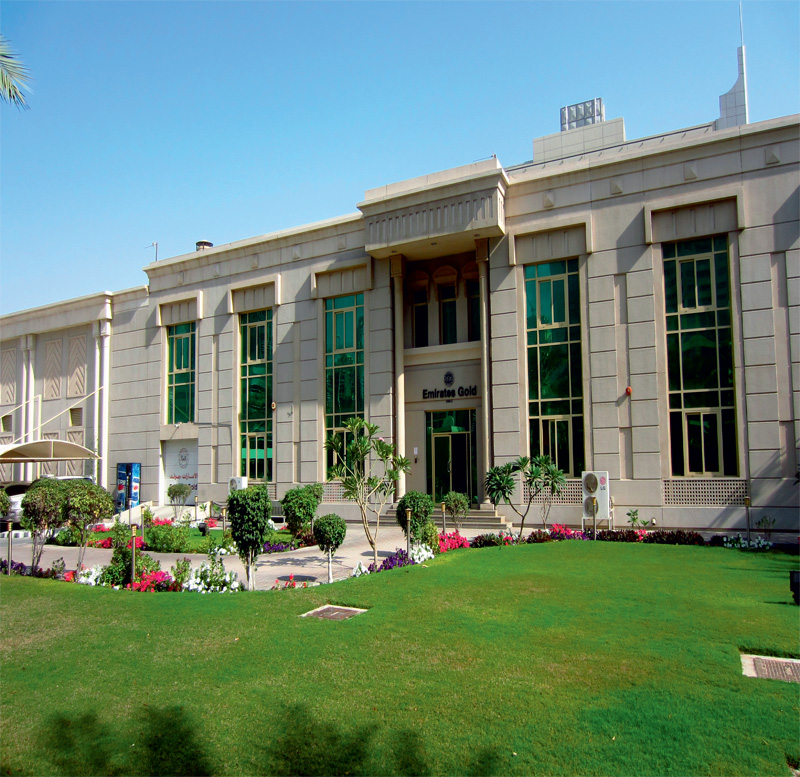
Emirates Gold Leading the Industry
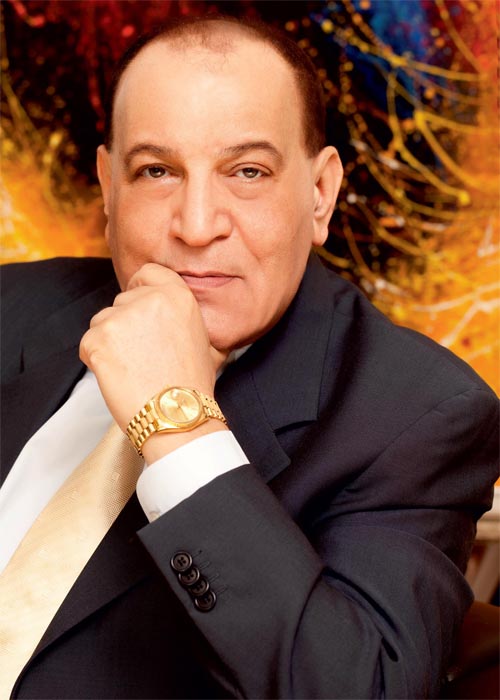 Mohammed Shakarchi Chairman - Emirates Gold |
Emirates Gold received Dubai Good Delivery accreditation (DGD) in 2005. At the time, we were the first refiner in the region to reach the standards set by DGD and one of the first refiners worldwide to make the list. In fact, in light of our experience and technical expertise, we participated actively in the development of the DGD standard, and without a doubt the DGD has increased the acceptance of the 995 kilo bar in the region. Since then, we have continued to maintain our leadership position, as evidenced most recently by being the only refiner to publicly report in September having successfully passed the new mandatory DMCC responsible gold audits for 2012. The history of our company spans more than two decades and is built on the trust of our clients and the quality of our products and services. With its early beginnings, Emirates Gold pioneered the production of gold and silver bars in the Middle East and continues to be a driving force for the development of the precious metals market in the region. Established in Dubai in 1992, Emirates Gold is a privately owned company built on more than half a century of personal experience in the gold industry acquired by our CEO who was previously operating in Switzerland.
|
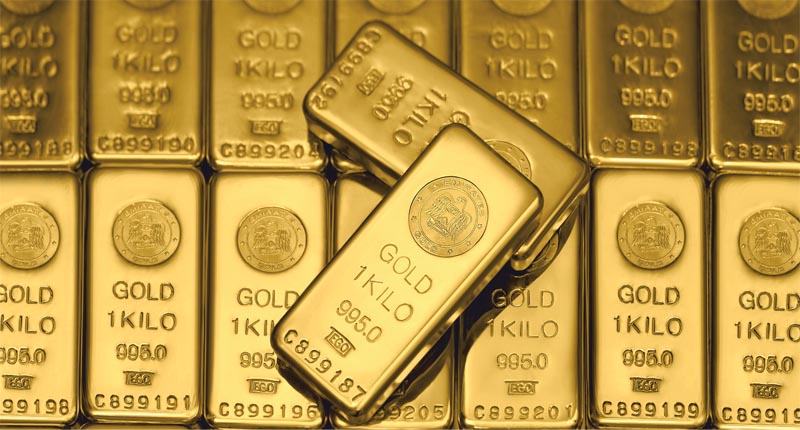
Today, we owe our success to the expertise of our employees, in particular our refiners, assayers, smelters, engravers, and tools and die makers. The focus of our company is our clients, the services we provide them, and the quality of the product we deliver. Our refinery and smelting departments are the heart of our daily operations, with state of the art machinery and an experienced staff to operate them. In addition, our deep relationships with international players provide our clients with liquidity to buy and sell gold and silver at competitive prices. Lastly, our value added production department tailors to investment type and custom made products, which we sell in the region as well as overseas. Our portfolio of clients spans a wide spectrum from major international bullion banks, to smaller traders, jewelry makers, corporates and local governments.
One of our crowning achievements in the acceptance of our kilo bars in the Indian gold market, certainly one of the most fascinating bullion markets in the world. For instance, Emirates Gold kilo bars are accepted for delivery on the Multi Commodity Exchange of India (MCX). We hope that our most recent success on responsible gold audits will again show our commitment to deliver the highest standards to the Indian gold market. 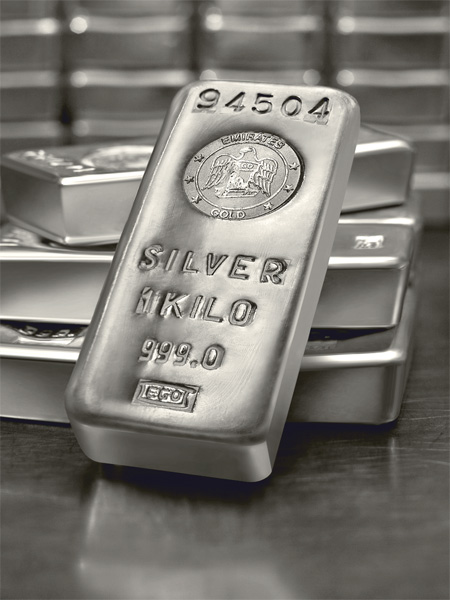 |
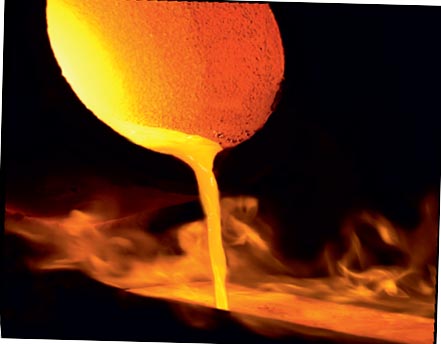
In terms of growth, Emirates Gold is always looking at opportunities to capture market share and expand the reach of its products and services. However, we believe in organic growth which must be measured in the context of the changing regulatory environment. Market share should not be captured at the expense of quality, and we prefer to be narrow but focused. We continually review our own processes and structure aiming to maintain flexibility to adjust to changing market conditions. This year for instance, the sharp drop in gold price in April, followed by the volatile physical demand from India obliged us to realign our workforce to better service our clients. This was achieved quickly and effectively thanks to our structure. In addition to the mainstream refining business, we are also looking at opportunities in the space of minted products. In this direction, we continue to innovate and help our clients recognize special occasions with gold or silver products tailor made for them. The finish and quality of our products makes us a premium brand in this sector resulting in a smaller but higher-end list of clients such as large international corporates or local governments. Looking ahead, we want to continue raising the bar in terms of quality and services delivered to our clients and we also hope that our work on responsible gold will help raise Dubai’s profile as a safe and fascinating place for trading gold. Contact: info@emiratesgold.ae and Website: www.emiratesgold.ae |
Dubai Commodities Clearing Corporation and
Clearstream cooperate in collateral management
Clearstream cooperate in collateral management
| |
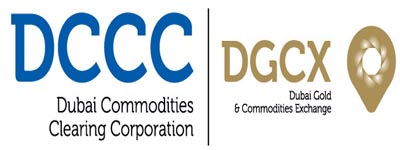 Clearstream and the Dubai Commodities Clearing Corporation (DCCC), the central counterparty (CCP) of the Dubai Gold & Commodities Exchange (DGCX), have agreed to cooperate on collateral management for CCP margining. The Middle Eastern CCP will join Clearstream’s extensive central counterparty network by connecting to the company’s integrated collateral management environment, the Global Liquidity Hub. By the end of the first quarter of 2014, DGCX customers will be able to leverage the collateral pools of Clearstream and its global strategic partners to meet margin requirements at DCCC through the Global Liquidity Hub. Thanks to its open architecture, the Global Liquidity Hub enables market participants to manage their growing number of worldwide exposures on a fully automated basis out of a single, global collateral pool which consolidates assets held at Clearstream and its strategic partners. DCCC now joins the long list of central counterparties that are already connected to Clearstream’s liquidity management solution benefitting from Clearstream’s already announced partner CSDs and agent bank partners such as ASX (Australia), CDS (Canada), Cetip (Brasil), Iberclear (Spain), SGX (Singapore), Strate (South Africa), BNP Paribas, Citibank and Standard Chartered. In total, the Global Liquidity Hub already includes over 550 counterparties. |
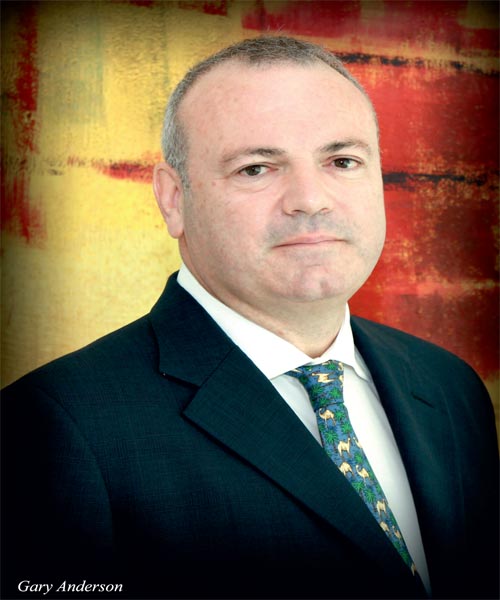 Gary Anderson, CEO of Dubai Gold and Commodities Exchange (DGCX), said: “We are happy to form an alliance with leading global post-trading services provider Clearstream to support our members in seamlessly and efficiently accessing global liquidity pools. Partnerships like these are key building blocks in our efforts to transform the Middle East’s derivatives marketplace and become a key hub in the global liquidity infrastructure map. Demand for collateral is expected to grow significantly, driven by both market forces and regulatory reform, and DGCX is keen to support its members in deploying collateral optimally without fragmentation.” |
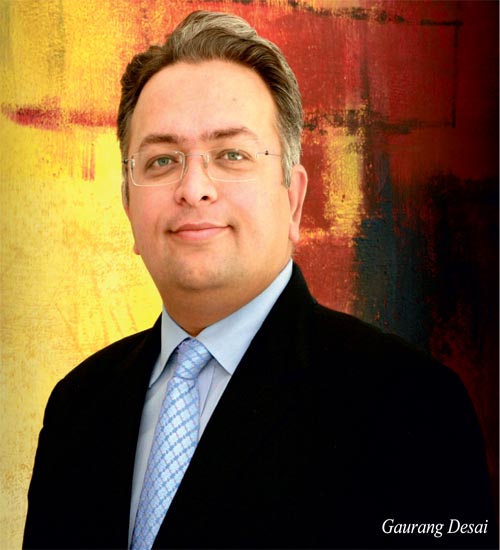
Gaurang Desai, Chief Operating Officer of DCCC, said:
“The partnership with Clearstream strengthens our overall offering for DGCX members with a service that promotes significant efficiency gains in managing and transferring collateral. This alliance takes our strategic efforts of being the CCP of choice in the region a notch further by providing products and services of international standards to our customers. The Clearstream alliance allows us to help our Members not only in addressing key liquidity requirements but also in creating new value and revenue opportunities through improved collateral management.” |
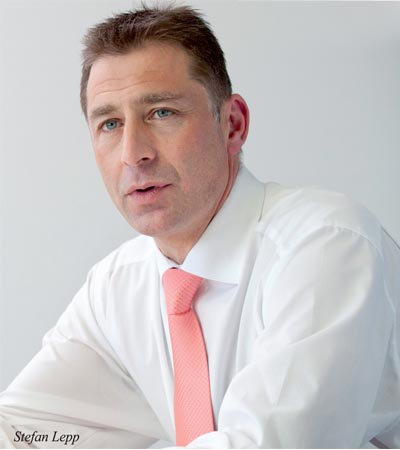
Stefan Lepp, Head of Global Securities Financing and Member of the Executive Board of Clearstream, said: “We are pleased to welcome DCCC in our Global Liquidity Hub as a CCP partner. Our strategy is to grant the market access to a growing number of exposure locations such as globally fragmented CCPs while at the same time connecting to an increasing number of collateral locations. The most important and unique feature of our open model is that the collateral remains in its current environment and with our partner CSDs, with agent bank and with global custodian partners.” This unique model, where assets and collateral remain with Clearstream’s partners, avoids the creation of new systemic risks and at the same time paves the way for costeffective and efficient collateral identification and allocation on a global basis. The open architecture of the Global Liquidity Hub best serves market participants who are looking to use liquidity from multiple sources to cover multiple exposure locations on an optimised basis. The increasing number of exposure locations spread around the world (such as CCPs) joining the Global Liquidity Hub and of Clearstream’s worldwide strategic partners (such as CSDs and agent banks) allows Clearstream to become the prime source of liquidity and risk management for moreand more market participants. Clearstream has a longstanding presence in the Middle East. Its office in Dubai was opened in 1995 to cover both the Middle East and Africa with a team of local sales and relationship specialists. |